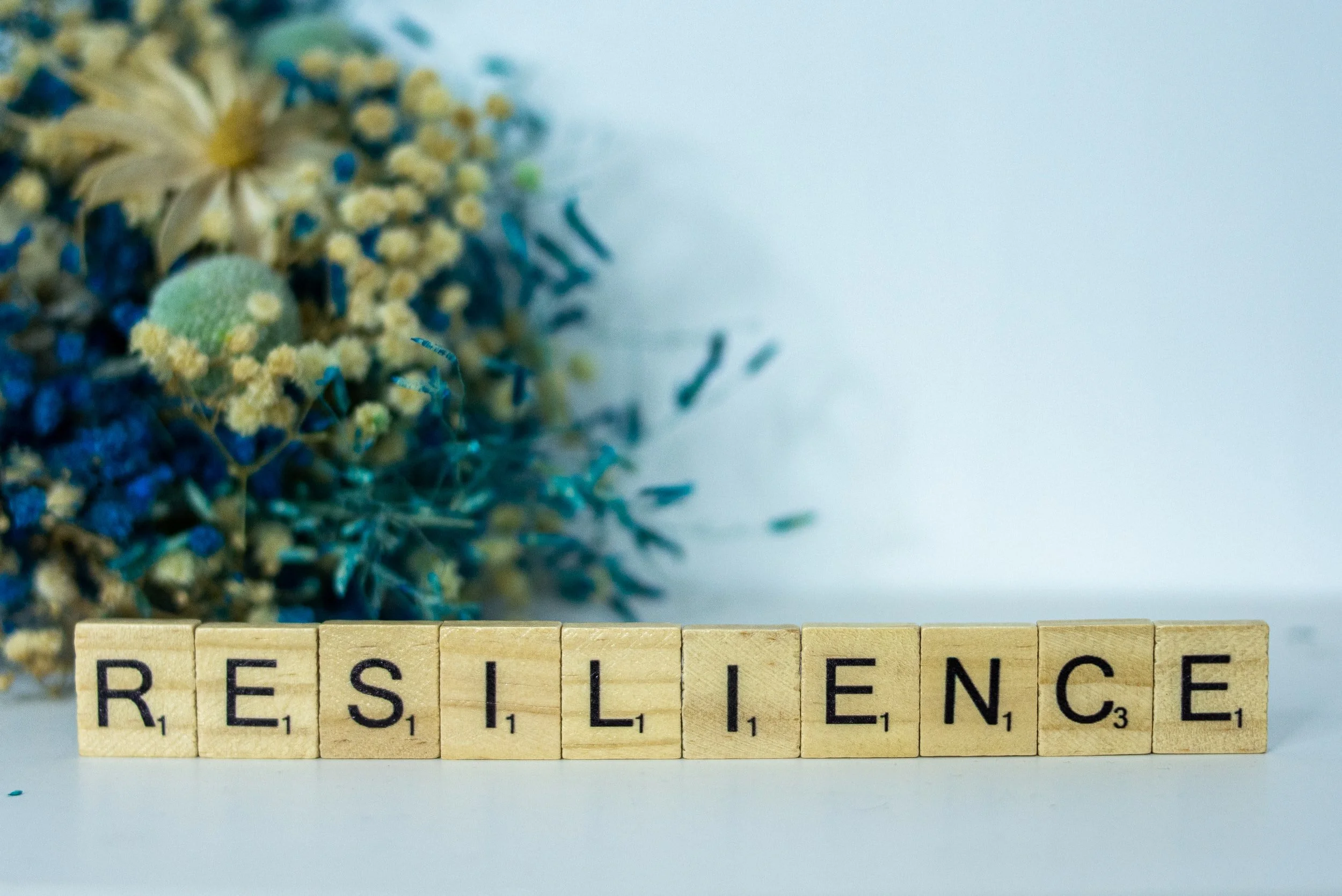Build Resilience
In an age of uncertainty, now is not the time to resign ourselves to defeatism and complacency. Now is the time to face, head-on, the challenge our moment in history has given us. Yet our weapons in this battle are not the usual sort. Our enemy is not a monster or a bad guy. The battlefield is within, and our armament is connection, sustained kindness, persevering compassion for self and others, unblinking awareness of the plights within community and society, and an unwavering commitment to seek and utilize solutions that benefit not only ourselves but also those around us.
Victory, if we are to seize it, depends on choices—the choices we make every day to not shy away from what's happening but to acknowledge and embrace an unknown, undetermined, unresolved, and unfixed future. To continue to be curious, to continue to connect with and build up others, to continue to find resilience where destruction seems to reign. We wage a war in which wellness and awareness seem to be enemies, when, really, they are companions. We must be aware of the pandemic, of what is going on in our justice system, of sociopolitical conflicts abroad, and of worsening climate trends, and bravely carve out a space for our wellness. We do this not out of an impulse to care merely for ourselves, but to find a source of life so that we can encounter and engage with the challenges our families and communities face.
To accomplish this task, we must be resilient—that is, to be elastic, to bounce back, to get up after a fall, to not need certainty in order to pursue solutions and goals. Are you resilient? Can your family, social network, and community count on your resilience as a source of support? Don't worry—an emphatic "Yes!" is not required; only an "I'm willing" is needed. More now than ever you are needed. So, meet the challenge, face the day, and make tangible steps to foster resilience in your life. Below are some suggestions on how to do so:
Make connections. Good relationships with close family members, friends, or others are important. Accepting help and support from those who care about you and will listen to you strengthens resilience. Some people find that being active in civic groups, faith-based organizations, or other local groups provides social support and can help with reclaiming hope. Assisting others in their time of need also can benefit the helper.
Avoid seeing crises as insurmountable problems. You can't change the fact that highly stressful events happen, but you can change how you interpret and respond to these events. Try looking beyond the present to how future circumstances may be a little better. Note any subtle ways in which you might already feel somewhat better as you deal with difficult situations.
Accept that change is a part of living. Certain goals may no longer be attainable as a result of adverse situations. Accepting circumstances that cannot be changed can help you focus on circumstances that you can alter. Many people, spiritual or not, find the serenity prayer deeply helpful. Try using this prayer as a mantra when feeling overwhelmed "God, grant me the serenity to accept the things I cannot change, courage to change the things I can, and wisdom to know the difference."
Move toward your goals. Develop some realistic goals. Do something regularly—even if it seems like a small accomplishment—that enables you to move toward your goals. Instead of focusing on tasks that seem unachievable, ask yourself, "What's one thing I know I can accomplish today that helps me move in the direction I want to go?"
Take decisive actions. Act on adverse situations as much as you can. Take decisive actions, rather than detaching completely from problems and stresses and wishing they would just go away.
Look for opportunities for self-discovery. People often learn something about themselves and may find that they have grown in some respect as a result of their struggle with loss. Many people who have experienced tragedy and hardship have reported better relationships, a greater sense of strength even while feeling vulnerable, an increased sense of self-worth, a more developed spirituality, and a heightened appreciation for life.
Nurture a positive view of yourself. Developing confidence in your ability to solve problems and trusting your instincts will help in building resilience.
Keep things in perspective. Even when facing very painful events, try to consider the stressful situation in a broader context and keep a long-term perspective. Avoid blowing the event out of proportion.
Maintain a hopeful outlook. An optimistic outlook enables you to expect that good things will happen in your life. Try visualizing what you want, rather than worrying about what you fear.
Take care of yourself. Pay attention to your own needs and feelings. Engage in activities that you enjoy and find relaxing. Exercise regularly. Taking care of yourself helps to keep your mind and body primed to deal with situations that require resilience.
There are many ways to strengthen resilience, so get curious. For example, some people write about their deepest thoughts and feelings related to trauma or other stressful events in their life. Meditation and spiritual practices help some people build connections and restore hope.

